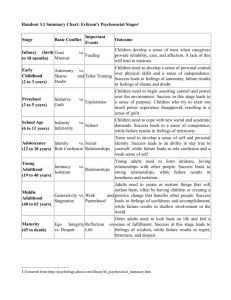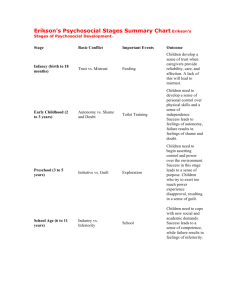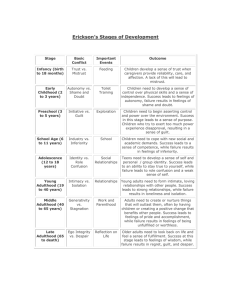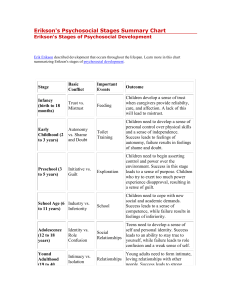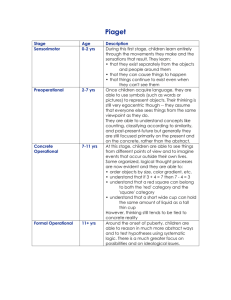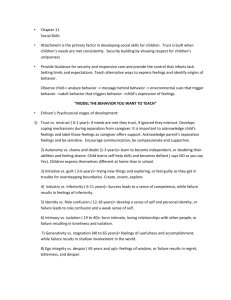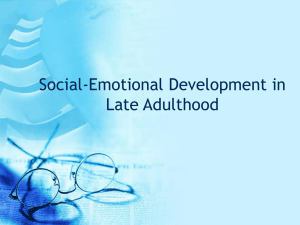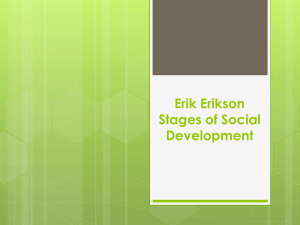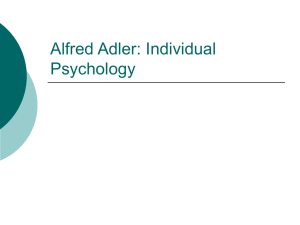kohlbergs theory of moral development
advertisement
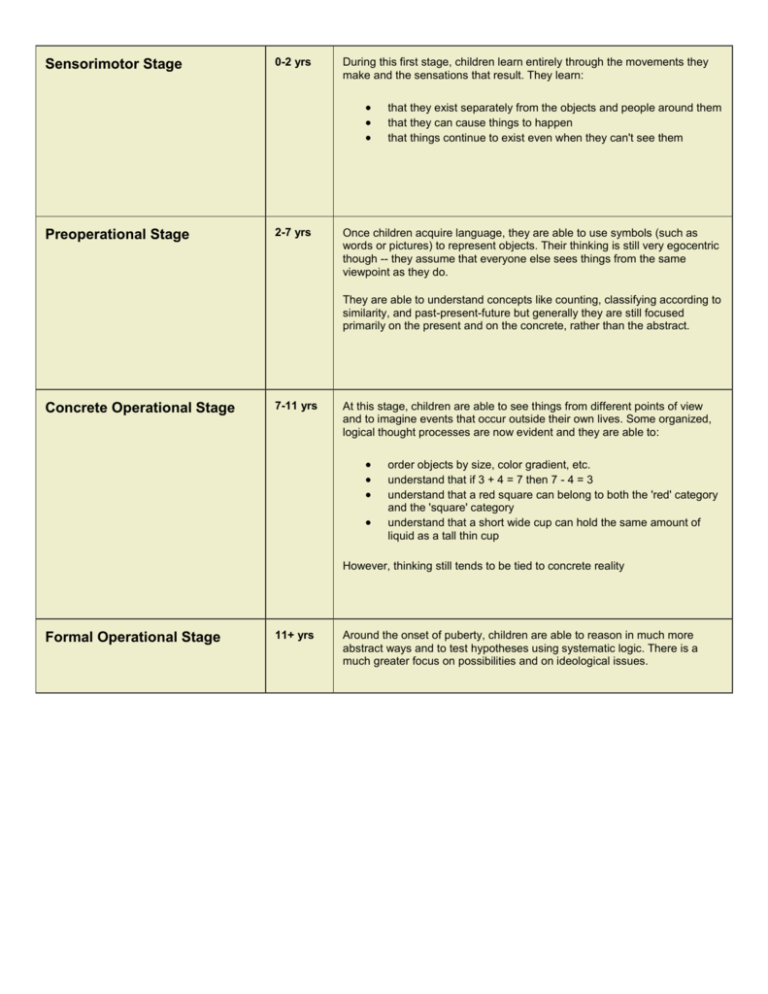
Sensorimotor Stage 0-2 yrs During this first stage, children learn entirely through the movements they make and the sensations that result. They learn: Preoperational Stage 2-7 yrs that they exist separately from the objects and people around them that they can cause things to happen that things continue to exist even when they can't see them Once children acquire language, they are able to use symbols (such as words or pictures) to represent objects. Their thinking is still very egocentric though -- they assume that everyone else sees things from the same viewpoint as they do. They are able to understand concepts like counting, classifying according to similarity, and past-present-future but generally they are still focused primarily on the present and on the concrete, rather than the abstract. Concrete Operational Stage 7-11 yrs At this stage, children are able to see things from different points of view and to imagine events that occur outside their own lives. Some organized, logical thought processes are now evident and they are able to: order objects by size, color gradient, etc. understand that if 3 + 4 = 7 then 7 - 4 = 3 understand that a red square can belong to both the 'red' category and the 'square' category understand that a short wide cup can hold the same amount of liquid as a tall thin cup However, thinking still tends to be tied to concrete reality Formal Operational Stage 11+ yrs Around the onset of puberty, children are able to reason in much more abstract ways and to test hypotheses using systematic logic. There is a much greater focus on possibilities and on ideological issues. KOHLBERGS THEORY OF MORAL DEVELOPMENT Important Events Outcome Infancy (birth to Trust vs. 18 months) Mistrust Feeding Children develop a sense of trust when caregivers provide reliabilty, care, and affection. A lack of this will lead to mistrust. Early Childhood (2 to 3 years) Toilet Training Children need to develop a sense of personal control over physical skills and a sense of independence. Success leads to feelings of autonomy, failure results in feelings of shame and doubt. Stage Basic Conflict Autonomy vs. Shame and Doubt Preschool (3 to 5 Initiative vs. years) Guilt Exploration Children need to begin asserting control and power over the environment. Success in this stage leads to a sense of purpose. Children who try to exert too much power experience disapproval, resulting in a sense of guilt. School Age (6 to Industry vs. 11 years) Inferiority School Children need to cope with new social and academic demands. Success leads to a sense of competence, while failure results in feelings of inferiority. Adolescence (12 Identity vs. Role Social to 18 years) Confusion Relationships Teens need to develop a sense of self and personal identity. Success leads to an ability to stay true to yourself, while failure leads to role confusion and a weak sense of self. Yound Adulthood (19 to 40 years) Intimacy vs. Isolation Young adults need to form intimate, loving relationships with other people. Success leads to strong relationships, while failure results in loneliness and isolation. Middle Adulthood (40 to 65 years) Generativity vs. Work and Stagnation Parenthood Adults need to create or nurture things that will outlast them, often by having children or creating a positive change that benefits other people. Success leads to feelings of usefulness and accomplishment, while failure results in shallow involvement in the world. Maturity(65 to death) Ego Integrity vs. Reflection on Despair Life Older adults need to look back on life and feel a sense of fulfillment. Success at this stage leads to feelings of wisdom, while failure results in regret, bitterness, and despair. Relationships

